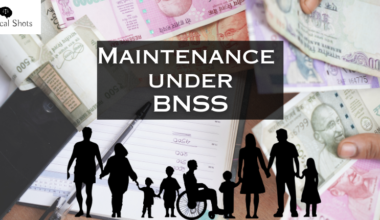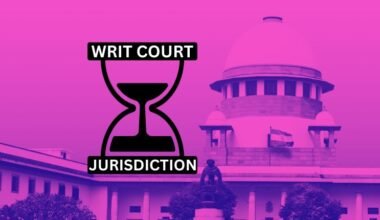If you have watched and heard the song Manali Trance, you must have felt that high. Forgetting everything and crossing over to another world with the help of some “special substance” may seem liberating, but it is against the law. In fact, being found in possession, manufacture, etc. of any of the materials mentioned in the NDPS Act may land you in jail. So what is NDPS Act in India? Before the NDPS Act came into force, there were several other laws which regulated the legality of cannabis, opium and other substances in India. However, The Narcotic Drugs and Psychotic Substances Act, 1985 is now quite famous in India, more so due to its strict provisions. Here, we are providing a brief introduction to the major features of the law and how it stands out as a special statute.
What are the objectives of the NDPS Act?
The main intent of the lawmakers is not to completely ban the use of narcotic substances, but keep the same for medicinal or scientific purposes, and not for addiction. The aim and objectives as broadly stated under the Narcotic Drugs and Psychotropic Substances Act, 1985 involve the following:
- To regulate the law related to narcotic drugs
- To control and regulate the operations connected with narcotic drugs and psychotropic substances
- To lay the process for forfeiture of property derived from, or used in, illicit traffic in narcotic drugs and psychotropic substances
- To implement the obligations under International Conventions on Narcotic Drugs and Psychotropic Substances
What are the Offences under the NDPS Act?
Any person who is involved in the cultivation, production, manufacture, possession, sale, purchase, transportation, warehousing, concealment, use or consumption, import-export of specific substances which are prohibited as part of narcotic drugs or psychotropic substances can be prosecuted under the NDPS Act. It may be noted that the financing of illicit traffic and harbouring offenders is also punishable under the NDPS Act. The property used in operations prohibited under NDPS Act can also be forfeited by the authorities. While the Act specifies the specific substances whose consumption, etc. is prohibited, the quantity of the same is also declared by the Government which makes it clear what is small quantity and commercial quantity under NDPS Act. Thus, any person involved in acts specified, related to particular intoxicating substances, in commercial quantity, can be prosecuted under the Narcotic Drugs and Psychotropic Substances Act, 1985.
NDPS Quantity List – Small vs Commercial Quantity
The Narcotic Drugs and Psychotropic Substances Act does mention that commercial quantity of certain substances is what attracts prosecution under the Act. However, NDPS Commercial Quantity Chart is not provided under the Act. Rather, the task is left to the Central Government. Section 2 (viia) of the NDPS Act defines “commercial quantity in relation to narcotic drugs and psychotropic substances, means any quantity greater than the quantity specified by the Central Government by notification in the Official Gazette”. The Central Bureau of Narcotics has shared the NDPS quantity list on its website, as shown below.
NDPS Commercial Quantity Chart
Punishment under NDPS Act
The Narcotic Drugs and Psychotropic Substances Act, 1985 states the various acts and operations which are prohibited, and thereby punishable. As mentioned earlier, quantities of substances has been specified, and the punishment under NDPS Act varies for the same, as depicted below:
| Quantity | Small Quantity | Less than Commercial Quantity | Commercial Quantity |
| Imprisonment | Rigorous Imprisonment of Max. 1 year | Rigorous Imprisonment of Max. 10 years | Rigorous Imprisonment ranging between 10 to 20 years |
| Fine | Max. Rupees 10 thousand | Max. Rupees 1 lakh | Between Rupees 1 lakh to 2 lakhs |
In addition, someone who has been convicted earlier and involved in a subsequent offence is punishable with 1.5 times the punishment mentioned in the table above. Hence, a person who is already convicted under the NDPS Act and it is his/her second time being involved in an offence related to Narcotic Drugs or Psychotropic Substances will be punished with maximum 1.5 years of imprisonment for small quantity, 15 years in case of less than commercial quantity, and similar case with the range of imprisonment provided for commercial quantity under NDPS Act. There are provisions for the death penalty as well for certain offences when the person has been convicted before under the Act.
Bail Provisions under NDPS Act
The offences under the NDPS Act are cognizable and non-bailable, which means that the police can arrest the accused without Magistrate ordering the same, and won’t get bail as well. While for other offences, supposedly under the Bharatiya Nyaya Sanhita, 2023, bail is the rule and jail is the exception. However, things are opposite when it comes to the Narcotic Drugs and Psychotropic Substances Act. Here, it is provided that the Court has to keep a stricter approach against an applicant for bail in the NDPS Act. To get bail in NDPS case, a person need to prove before the Court that he/she is not guilty as alleged, and that he/she is not a flight risk, or likely to commit any similar crime as accused of. If the Court is convinced, bail may be granted.
Burden of Proof in NDPS Act
In criminal matters, there is prosecution which alleges the commitment of certain offences by the accused persons, and the parties need to prove their case before the Court. Burden of Proof means the party in NDPS matters who needs to prove its case beyond reasonable doubt before the Court. While otherwise, criminal provisions hint that a person is assumed innocent until proven guilty. But the NDPS Act being a special statute takes the track that a person should be assumed guilty unless proven innocent. In other words, the burden of proof in NDPS matters lies with the accused. So if the allegations are that the said accused was found in possession of a commercial quantity of prohibited substances under NDPS Act, it is up to the accused to prove that he/she is not at all related to the matter and was not in possession of the material as alleged. If the person is able to convince the Court and prove his/her stance, or disprove the allegations by prosecution, there are higher chances that the Court will discharge him/her.








